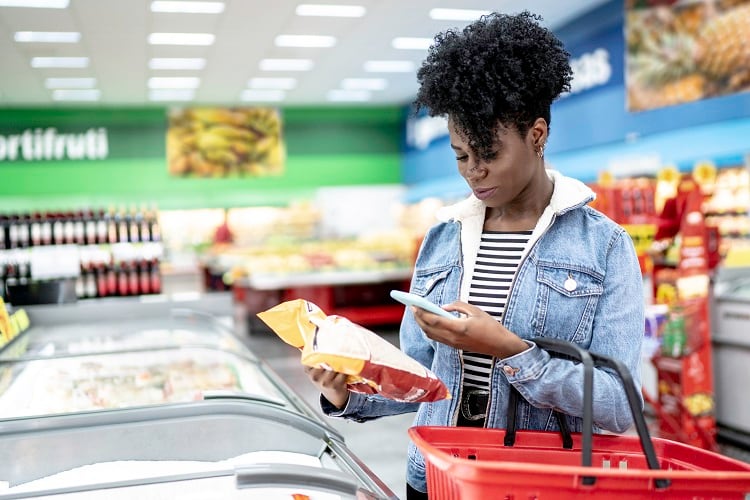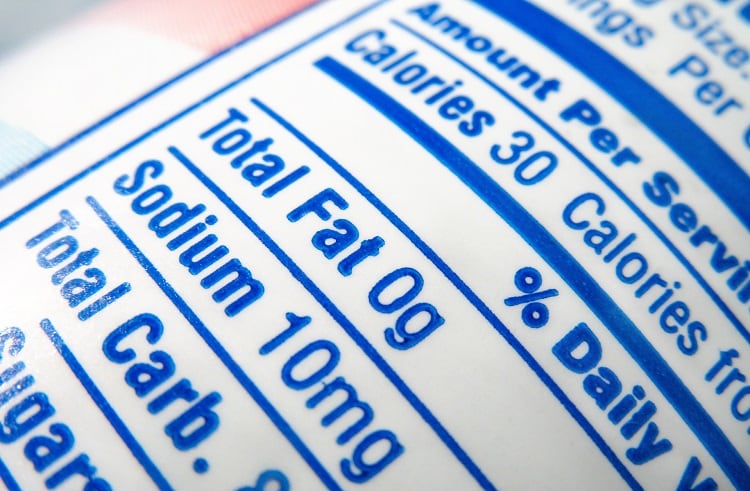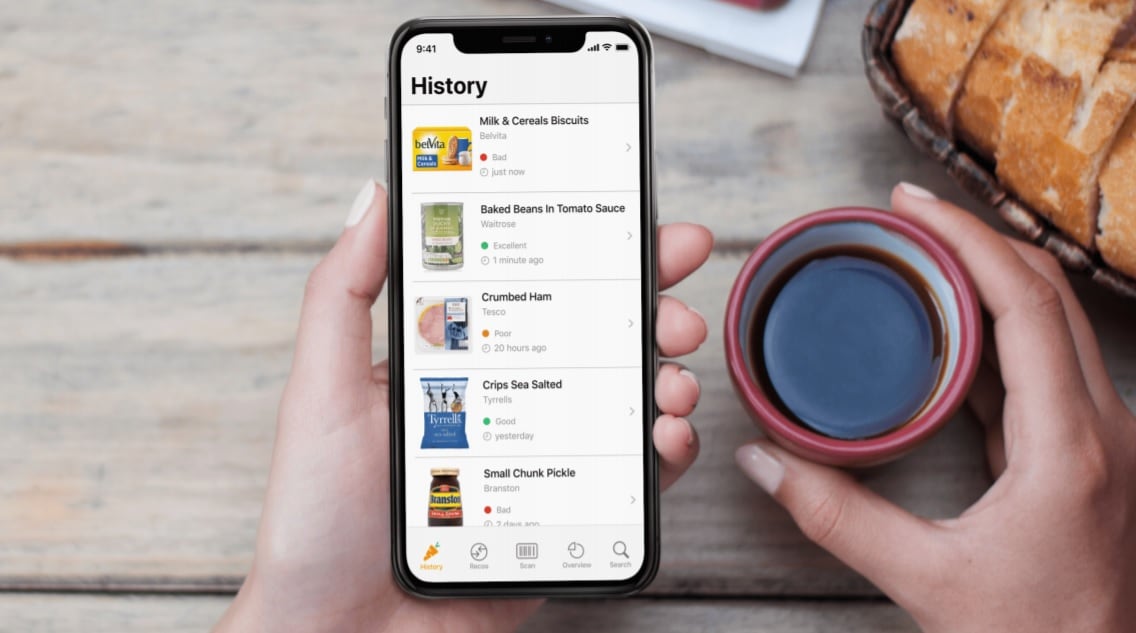Yuka launched onto the French market in 2017. Set up by three co-founders – brothers Benoit and François Martin, and friend Julie Chapon – its aim is to help consumers make sense of product labels, and ultimately, make ‘healthier’ choices.
In the long term, the company hopes that through ‘informed purchasing’, consumers will leverage their buying power to drive the agri-food and cosmetics industries towards improving their product offerings.
Fast-forward five years, and it could be argued Yuka is having the impact it intended.
According to co-founder François Martin, a ‘big’ reformulation trend has been observed since Yuka first entered the market.
The reformulation trend
These days, the Yuka app is available to consumers across the world, in countries including the US, the UK, Canada, Australia, Ireland, Germany, Belgium, Switzerland, Luxembourg, Spain, Italy, and of course, France.
Reformulation efforts to reduce fat, sugar, salt and overall calorie content within food and beverage products have seen an uptick in most of these countries in recent years.
Drivers could include front-of-pack nutrition labelling schemes such as Nutri-Score, as well as an increase in consumer demand for ‘healthy’ foods as a result of the COVID-19 pandemic.
Regulation is also likely to be playing a role. In the UK, for example, brands are preparing for incoming HFSS legislation, while an increasing number of countries enforce sugar taxes and levies on manufacturers.
Martin is convinced Yuka is also playing its part. “Every day we see products being reformulated,” he told this publication.
“We’ve seen a big trend over the last five years, at least in Europe, where manufacturers and brands are improving their [products’] composition, and some have told us that it was thanks to Yuka.”
French supermarket retailer Intermarché is one such player, we were told.
“Because of Yuka, they removed 140 additives from their products and reformulated 900 products of their [own] brand.”
How does Yuka work?
Yuka works off a comprehensive database of more than 1.5m food products. When a shopper scans the barcode of a food item, the app rates the item and offers detailed information to help consumers understand the healthiness of each product.
The food item in question is ranked into one of four categories: Bad, Poor, Good, or Excellent for one’s health.
Where a product is deemed to have a negative impact on the consumer’s health, the app recommends a healthier alternative.

“The consumer is really concerned about the relationship between food and their health,” explained Martin. “That was really the starting point of Yuka.
“They are mainly concerned about levels of sugar, salt, and additives. ‘Additives’ [refers to] the chemical substances added to a product to give them special properties, such as preservatives, sweeteners, and colourants. Some present a risk to your health, and consumers are really concerned about that.”
Yuka’s food product scores are based on three criteria. The most important of these in nutritional quality, which makes up 60% of the final score.
Three criteria for calculating health
The nutritional quality calculation is based on the Nutri-Score method, taking calories, sugar, salt, saturated fats, protein, fibre, fruits and vegetables into account.
The presence of additives makes up 30% of the score. Benchmarks are based on the ‘latest scientific research’, including recommendations from the European Food Safety Authority (EFSA) and the International Agency for Research on Cancer (IARC).
Every additive is assigned a risk level based on various existing studies: risk-free (green dot), limited risk (yellow dot), moderate risk (orange dot), and hazardous (red dot).
“If an additive is present that we consider to be hazardous, the maximum score for the product is set at 49/100,” explained the start-up. “In this case, the criterion can represent more than 30% of the score.”
The final 10% of the score relates to whether the product and/or its ingredients are organic. This information is provided via an official national or international organic certification.

The decision to combine various criteria into the score came from Yuka’s integrated approach, explained Martin.
“We talked to a lot of nutritionists, and after a long time it became clear that there is a magnitude of impact [in nutritional quality]. The most important aspect is the nutritional value of a product and that’s why it represents 60% of the score.”
In second place comes the ‘degree of transformation’, he continued. If a product is ultra-processed, it may well contain a lot of additives, the CEO stressed.
And then finally, 10% was awarded to the ‘organic dimensions’ because pesticides do have an impact on human health, but not as big a proportion, we were told.
‘Our core value is independence’
Since its inception, Yuka has prided itself on being completely independent and objective in its ratings, analyses, and product recommendations.
With no in-app advertising, the Paris-based start-up generates revenue from users only.
Consumers can support Yuka in three ways: by subscribing to the paid, ‘member version’ of the app; by purchasing Yuka’s Health Eating Guide, and by purchasing Yuka’s calendar of seasonal fruits and vegetables. The latter two offerings are available in France only.
In an effort to be as transparent as possible, Yuka’s revenue streams are published on its website. In 2020, for example, €777,771 came from sales of its premium app, €485,826 came from the Healthy Eating Guide, and €271,826 came from sales of its seasonal calendar.
The Yuka evolution: What’s next?
Yuka is steadfast in its objectives to help consumers make better food choices and uninterested in pandering to consumer demands.
“We want to establish a score that represents if a product is good or bad for your health. It is unrelated to consumer demand,” explained Martin. “Maybe a consumer wants a product without additives but doesn’t care about sugar [content]. That might be the case.
“But we don’t want to be the score that matches consumer expectation. We want to be the score that represents if a product is good or not for human health.”
Where Yuka is looking at evolving is in into the environmental scoring space. Last year, the app kickstarted a system that provides a score according to how many CO2e emissions were associated with the production of a product, alongside water use and soil toxicity, among other factors.
“We’re doing a lot of work on environmental impact,” explained Martin. “We’re starting this product in France before scaling to other countries. We are going to do it step-by-step and hope to open [this function up] to new countries next year.”
The environmental score, while available through the standard Yuka app, is separate to the health score. And for good reason, the co-founder explained: “Some meat can be good for your health, but it’s not ideal for the environment. So we’ve made two different scores.”
To listen to François Martin’s interview with FoodNavigator, tune into The FoodNavigator Podcast here or wherever you access your podcasts.




